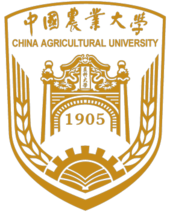China Agricultural University (CAU) is one of the top-ranked key national universities in China. It is one of the universities listed in 211 and 985 Projects and directly subordinated to the Ministry of Education of P.R.China. Project 211 is a project of National Key Universities and colleges initiated in 1995 by the Ministry of Education of China. There are more than 1,700 standard institutions of higher education, with about 6 percent of them being 211 Project institutions. Project 985 is a project first announced by Chinese President Jiang Zemin at the 100th anniversary of Peking University on 4 May 1998 to promote the development and reputation of the Chinese higher education system. By the end of the first phase of the project, 34 universities were sponsored. In the second phase of the project, five more universities were added to the project, bringing the total number to 39. It was announced in September 2007 that the project will not admit other universities.
Campus
CAU has 3 campuses, including the East Campus, West Campus, and Jianshe Campus. Students have free choices to enroll in more than 60 Undergraduate Specialties, around 140 Masters Programs and more than 80 Doctoral Programs if qualified. The trend of student population continues to rise with more than 70,000 students in total currently enrolled.
Academics
China Agricultural University is authorized to award academic degrees at BSc, MSc, Ph.D. and Post-PhD levels. The Undergraduate Program is organized within one of the 13 colleges, and Masters and Doctoral Programs are conducted under the direction of the Graduate School, which is the first graduate school of this kind among all agricultural universities in China. The educational programs cover a broad spectrum in both natural and social sciences, across the fields of food and agriculture, livestock, soil and water, engineering, economics, environment and energy, management, science, literature, and law.
Collaborations
Developing itself into an internationalized institution, CAU considers international exchange and cooperation to be a significant component of its mission. CAU has well-established collaborations via 296 counter-signed Memorandum of Understanding or Agreements with 178 universities from 35 countries in North America, Europe, Asia, & Oceania. The exchange of students with partner universities has become a routine of work. In addition, cooperation with UN specialized organizations and international institutions have been developed. A worldwide network for academic exchange & collaboration is under cultivation.
In addition, CAU has also conducted several successful joint educational programs with the US, Netherlands, and the UK, further strengthening CAU’s role in the world educational community. The International College of Beijing, one of the best international higher education programs in China, has become very popular.
University Rankings
CAU was ranked in the 5th place in regards with the Major Progress in Science and Technology, the 6th place in the number of Three Major Scientific and Technical Prizes for State General Projects, and the 2nd place in the number of Three Major Scientific and Technical Prizes for State General Projects as the hosting university in 2010.
About Beijing
Beijing is a glamorous city with a long history of more than 2,900 years. As China's political, cultural and educational center, Beijing is a rapidly developing metropolis longing for various exchanges with other countries in this increasingly globalizing world. Beijing is a hub of Chinese civilization and culture and boasts 7300 cultural relics and historic sites and more than 200 scenic spots. Traversing for several kilometers on lofty and rugged mountain ranges, the Great Wall is the only man-made structure that can be seen in the outer space. Noted for its undisturbed tranquility, the Summer Palace is a classic representative of royal gardens and summer retreats. Situated at the city's heart, the Forbidden City is a fine embodiment of China's long history and vibrant culture. Beijing is also well-known for its labyrinthine hutongs and square courtyards, which have become an integral part of this city after hundreds of years. This city has become a cultural monument with great vitality, encompassing great past glories and modern progress in economics, social systems, science, and technology. Beijing also takes great pride in its cultural heritage and environment. Through adopting a strategy of sustainable development, this ancient city will display a brand-new image to the world. August and September mark the end of summer and the beginning of autumn in Beijing, with temperatures ranging from 18 to 30 degrees Celsius. This September and October is the best season to visit, with clear, blue skies allowing visitors to fully witness the charm and vastness of the city.
Dining
A) On-Campus
There are several cafeterias on both campuses, providing Chinese foods, western foods, and Muslim foods. The open time of the student cafeteria is 6:30 – 9:00 for breakfast, 11:00 – 13:00 for lunch and 17:00 – 19:00 for supper. Some also serve food at night before 22:00. The Muslim restaurant provides Muslim students with food and drinks at 3:00 am during the Muslim Ramadan.
The campus card will be used in cafeterias. After having meals, you are encouraged to clear your tableware away by yourself.
B) Off-Campus
There are a variety of restaurants serving Western and Chinese food very near campus. Western restaurants within walking distance include McDonald’s, KFC, Subway, Starbucks and Big Pizza. A Chinese restaurant on the second floor of the women’s dormitory is a favorite spot among both Chinese and international.
China Agricultural University Library
China Agricultural University Library consists of two parts, East Library (17 Qinghua East Road) and West Library (2 Yuanmingyuan West Road) occupying 21,665 square meters and hosting more than 2700 reading seats.
China Agricultural University Library (CAUL) is one of the most important libraries in agricultural education and research in China. Our major collections include paper documents (more than 1.7 million volumes), electronic journals (more than 2.5 million), and electronic books (more than 4 million). The collections emphasize agricultural science, biology and agricultural engineering.
User education is one of the main functions of CAUL. The library provides different kinds of training courses and workshops to students and faculties every year. CAUL has been active for a number of years in developing international communications and cooperations. CAUL pursues in collection development, personalized information service, and resource sharing.
Student Accommodations
A) On-Campus
The university provides CSC international students with accommodation. Students arranged to live on the east campus can directly take relevant documents with photocopies that may be in need of the International Student Dormitory Building, located in the southeast part of the campus, for the procedure of residence. In return, you will be given the Resident Card. Students arranged to live on the west campus need to go to the Peixun Building of College of Continuing Education for a procedure, and take the Resident Card back with you.
Students are required to follow all the arrangements and regulations of the university on accommodation.
B) Off-Campus
International students tending to live off-campus are required to complete the procedure of residence registration and get the Registration Form of Temporary Residence (Resident Card) back with you in 24 hours after you get settled down. With the photocopy, you need to come back to the Office of International Students for information modification. With the house owner, students choosing home-stay have to take relevant documents such as a passport to complete the residence registration in the affiliated police station. During the procedure, the registered residence, house property ownership certificate, renting contract, as well as the identity card of the house owner will be in need.
The International College of Beijing
The International College of Beijing (ICB) is an integral part of China Agricultural University (CAU). ICB was founded on April 20th, 1995, as the result of a joint venture educational program between itself and the University of Colorado at Denver (UCD). The agreement reached between UCD and Chinese educational authorities, which led to the creation of the International College of Beijing, is now recognized as being among the first bilateral educational programs authorized by the Chinese government. In April 1988, ICB started the cooperation with the University of Luton, UK, and was formally accepted as one of the first joint venture educational schools by the Beijing Institute of Education. Recently a new joint venture educational program has been planning and preparing, which would help ICB develop better in the future. ICB currently has more than 900 students enrolled on its campus. This figure includes a number of international students. In the past few years, ICB has successfully created and set up the Language Research and Training Center, the Media Library, the Multimedia Computer Lab, and the Media Research Center. These facilities have greatly increased the efficiency and quality of the academic program offered by the International College at Beijing and its UK Luton Partner. After over 10 years of hard work and rapid development, the results have been greatly rewarding. ICB has become a highly respected international educational institution, which has at its disposal a competent faculty, advanced teaching facilities and a high standard of education.
Show less




.png)






